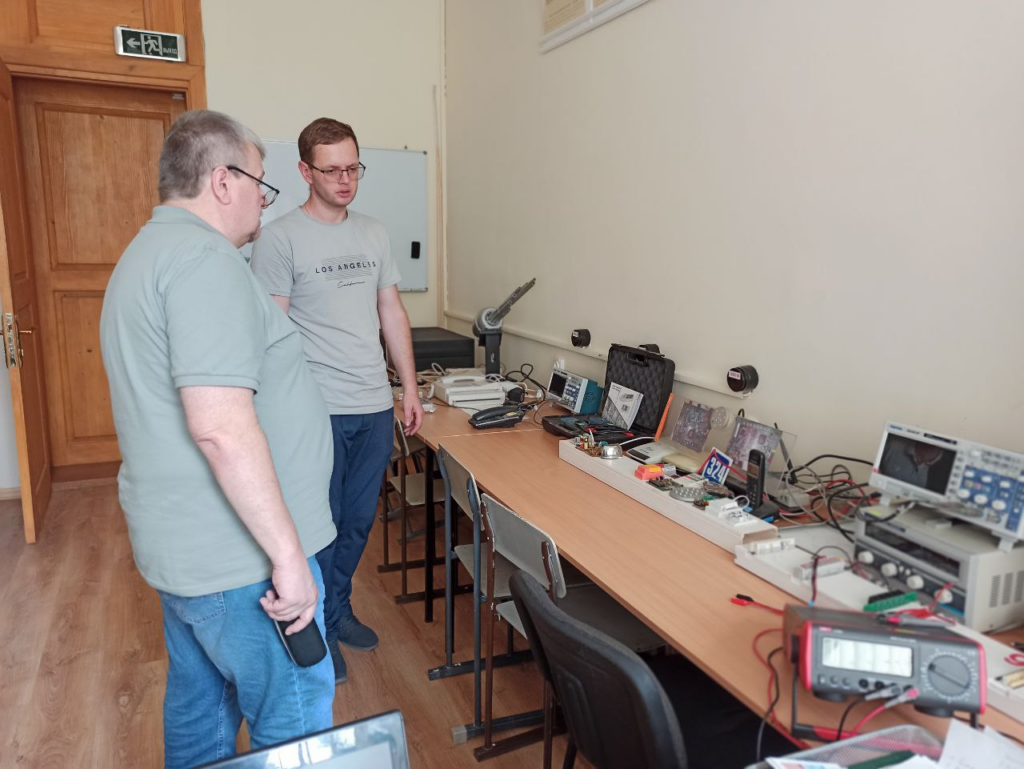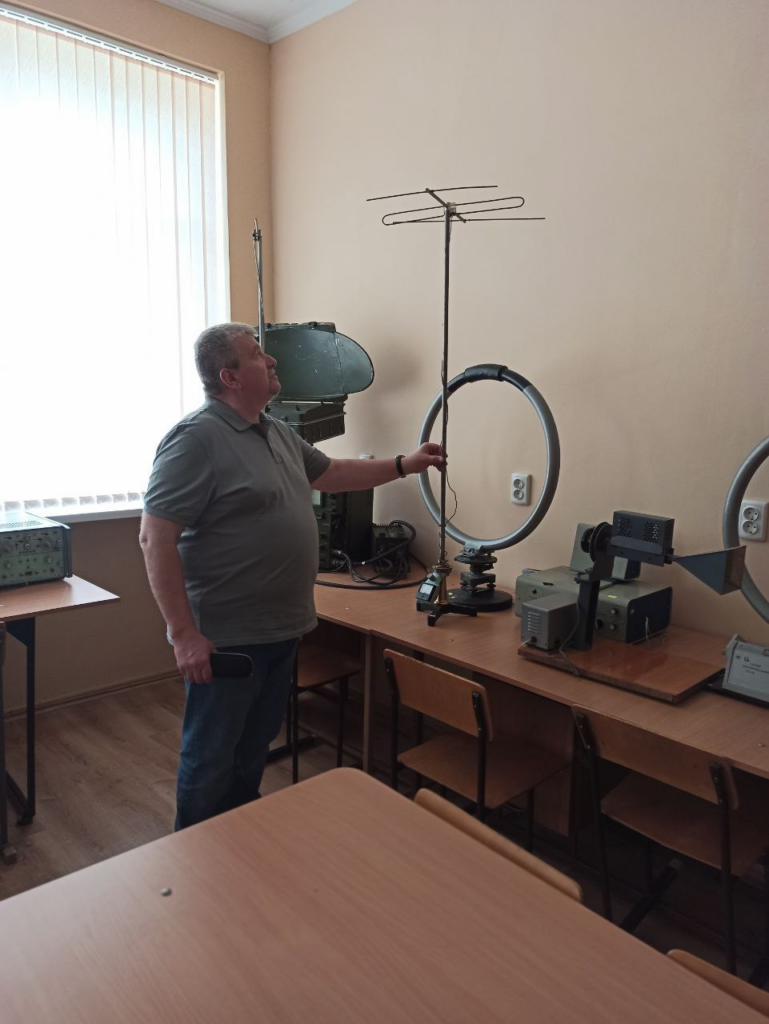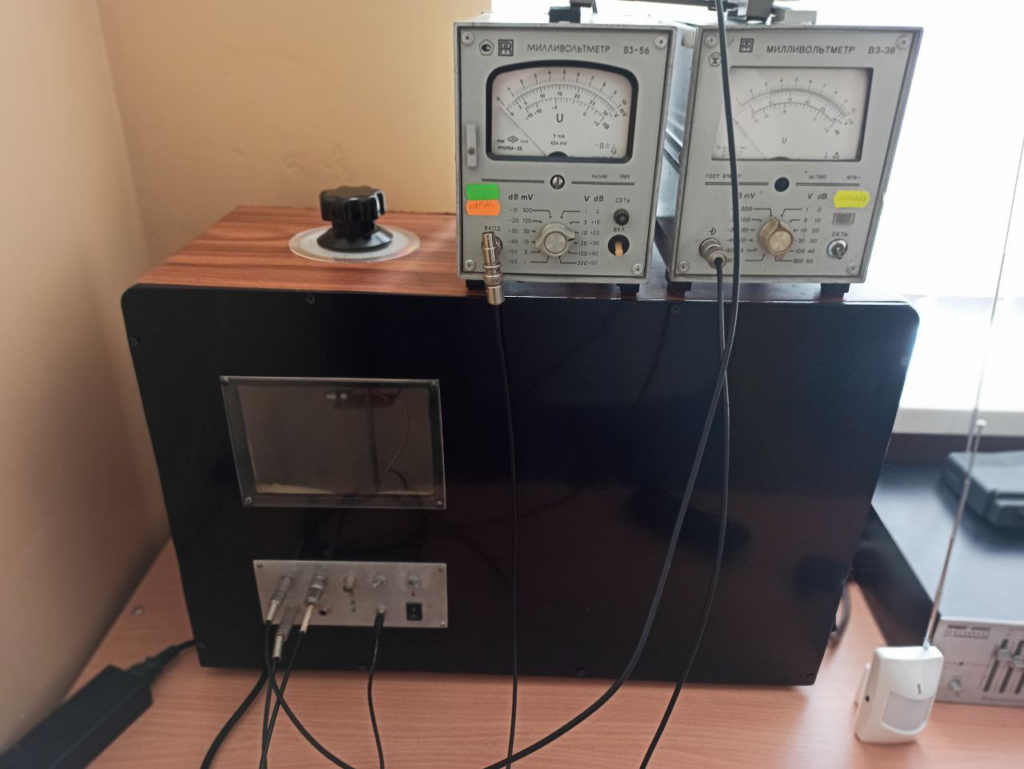In accordance with the Agreement on Cooperation in the Implementation of Internal Academic Mobility Programs(http://surl.li/oyvlur) from April 1 to June 30 this year, the Head of the Department of Telecommunications, Media and Intellectual Technologies of Yuriy Fedkovych Chernivtsi National University (CNU) was trained at the Department of Radio Engineering and Information Securityhttps://tmit.khmnu.edu.ua/of Khmelnytskyi National University (KNU), Doctor of Technical Sciences, Professor Serhii Pidchenko.
The purpose of the internship is to develop professional and managerial competencies in the field of electronics, automation and electronic communications in the training of students majoring in 172 - Electronic Communications and Radio Engineering.
The internship was supervised by the Vice-Rector for Scientific Work of Yuriy Fedkovych Chernivtsi National University, Doctor of Technical Sciences, Professor Andriy Samila.
As part of the internship, Professor Serhii Pidchenko visited the Department of Radio Engineering and Information Security of Chernivtsi National University, which trains specialists in the specialties "172 - Electronic Communications and Radio Engineering" and "125 - Cybersecurity and Information Protection". At the meeting of the Department, the participants discussed and exchanged experience in organizing academic mobility programs and outlined the prospects for cooperation in the research activities of the Department of Radio Engineering and Information Security of the CNU and the Department of Telecommunications, Media and Intellectual Technologies of the Kharkiv National University.
During the acquaintance with the material base, in particular, the laboratories "Modeling and synthesis of radio electronic means of radio spectroscopic and media information systems", "Radio electronic systems", "Embedded systems", "Microprocessor systems", "Antenna-feeder devices", "Technical means of information protection in radio engineering devices and telecommunication systems", it was noted that the department pays due attention to the use of modern technical means and equipment, including those purchased at the expense of the university, grant research and with the support of Intel, Tektelic, Cypress corporations.


Particularly interesting is the experience of using specialized information security equipment in the educational process, including electromagnetic field detectors, radio and acoustic noise generators, GPS trackers, hidden video cameras and eavesdropping devices, etc., as well as professional information security equipment: automated complex for radio monitoring and search for embedded devices (AKOR-3), specialized complex for acoustic protection of speech information (KAZMI).


An interesting practice is also the use of the team and equipment of the collective radio station of the Chernivtsi National University (UR4YWW) to conduct classes, in particular in the disciplines "Radio countermeasures in information and telecommunication systems", "Radio monitoring and radio countermeasures at information activity facilities".
As a practical result of the internship, an internal academic mobility program was developed and implemented between 1st year master's students of the Electronic Information and Communication Systems and Networks program at KhNU (guarantor - Doctor of Technical Sciences, Professor Serhii Pidchenko) and the Radio Engineering program at the Chernihiv National University (guarantor - Candidate of Physical and Mathematical Sciences, Associate Professor Marharyta Rozhdestvenskaya)https://khmnu.edu.ua/akademichna-mobilnist-zdobuvachiv-vyshhoyi-osvity-speczialnosti-172-elektronni-komunikacziyi-ta-radiotehnika/Proposals for the implementation of internal academic mobility programs by students of Khmelnytskyi National University and Yuriy Fedkovych Chernivtsi National University for all levels of education (bachelor's, master's and doctoral degrees) have been formed.
Information of the TMIT department